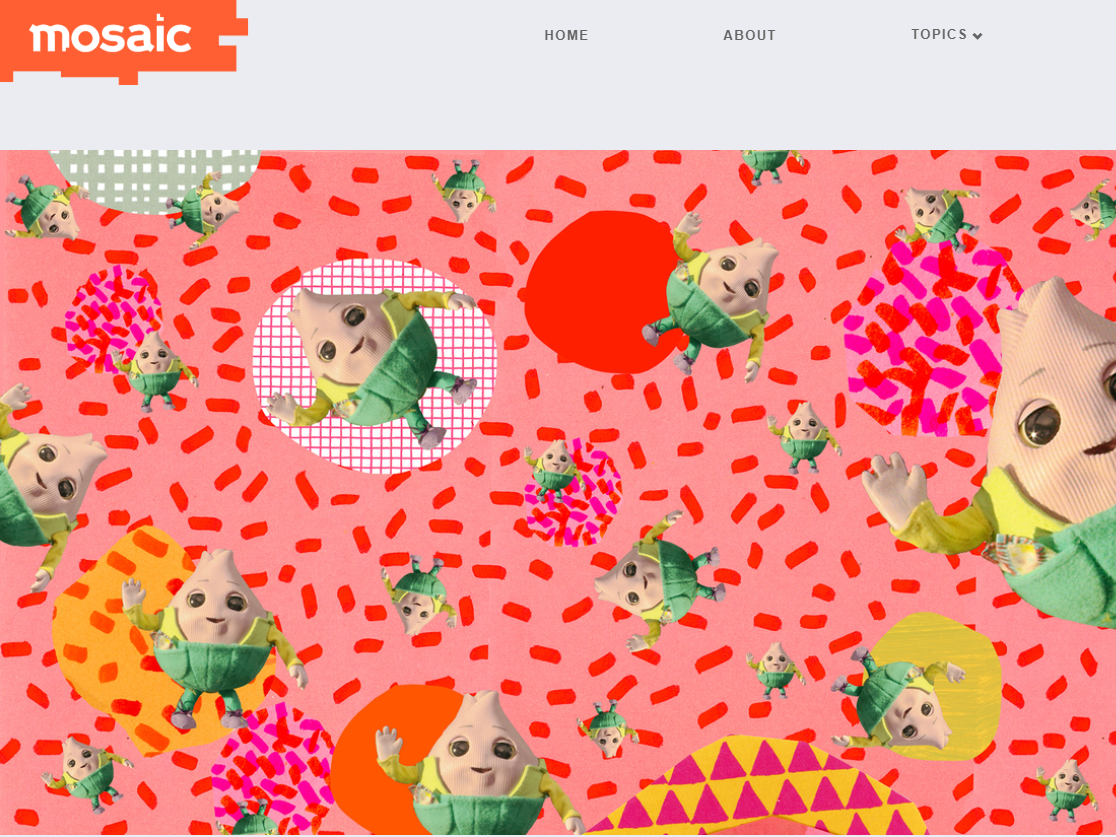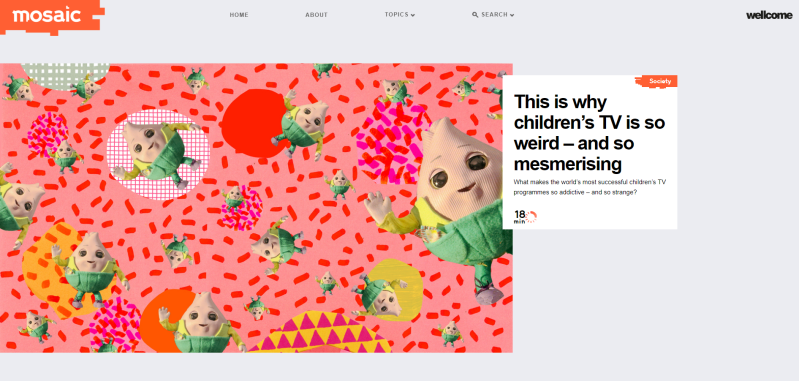
An online science and health magazine will close next week after its charity proprietor decided it was unable to justify the extra resources needed to help it “thrive in a crowded digital landscape”.
The Wellcome Trust launched long-form magazine Mosaic in March 2014, publishing one article of 3,000-plus words each week. It turned fortnightly in 2017 and is now set to close next Tuesday.
Two journalists are being made redundant as a result: Mosaic’s editor Chrissie Giles and commissioning editor Rob Reddick.
Other staff members who worked on Mosaic, including an art director and copy editor, will remain at Wellcome where they already spent much of their time on wider communications work, it is understood.
Among the title’s former contributors was journalist Lyra McKee, who was shot dead while reporting on riots in Derry earlier this year.
McKee’s partner Sara Canning tweeted that she was “so sad” to hear Mosaic was closing because it “gave Lyra some amazing opportunities and she loved working with you guys so much”.
Giles told Press Gazette Mosaic had a “unique way of telling stories that we’re not even touching the surface of in the UK”, noting long-form journalism has a “bigger tradition” in the US.
“We need somebody to step up and really support it,” she said.
Mosaic was the brainchild of former Times science editor Mark Henderson after he joined Wellcome as director of communications.
In a blog explaining the reasons for the closure, Henderson said the charity had changed its strategy to focus more on certain priority areas, such as drug-resistant infections, mental health, and climate change.
Henderson said a review of Mosaic led to the conclusions that “to thrive in a crowded digital landscape, Mosaic would need more investment” and a change to commissioning policy to match Wellcome’s priority areas.

He said: “Over the past few months, we’ve been looking for ways of resolving these challenges. Unfortunately, that has proved too difficult.
“As Mosaic has always had a free rein to commission content that wasn’t tied to a specific Wellcome viewpoint, we felt that a tight focus on a few issues would change its ethos and character too much. But without a tight focus, we couldn’t justify the extra charitable resources Mosaic would need.
“It just wasn’t possible to square the circle in the end. After a lot of deliberation, and with some sadness, we’ve thus decided it’s the right time to move on.”
Since its launch, Mosaic has published just under 250 long-form stories alongside a small number of short pieces and videos. Its final three final stories are set to be published before it closes.
A podcast version of every feature was produced to make them more accessible, sitting alongside Giles’ aim to be as inclusive and diverse in subject matter and writers as possible.
The website has had more than 9m unique visitors since it launched, according to Giles. Its total readership is an estimated ten to 20 times that figure however, as Mosaic stories can be republished by any publisher for free with attribution under a creative commons licence.
Giles said Mosaic “effectively doubled” its page views when it went fortnightly because of the “perennial interest” in its content.
She went on: “I think what we’ve learned is people not only have the time but they have the desire to read this stuff – writers, readers, editors.
“What Mosaic has shown is there is absolutely a market for this and it isn’t impossible for organisations to do it well,” she said, adding that they would “need budget, writers and time, but it isn’t rocket science”.
Giles Newton, Mosaic’s founding editor who left 18 months ago to move into consultancy, told Press Gazette the closure was “obviously a shame” but that he understood the strategic decision.
He said one of the reasons behind setting the platform up in the first place was a “dearth” of in-depth science journalism in the UK, although he noted the work of digital magazine Aeon and the now-defunct Matter.
“There obviously will be something of a hole in in-depth science journalism of this type left by Mosaic. Obviously there are lots of other great long-form stories that other publications produce,” he said.
“One of the great successes was showing that creative commons was a really effective way of increasing readership.”
Henderson promised Mosaic will be wound down in an “orderly and responsible way”, including by honouring contracts with contributors and telling commissioned writers they are free to take their work elsewhere.
He also said the website’s content will remain online until the best way of archiving it for the future has been decided.
Picture: Jesse Orrico/Unsplash
Email pged@pressgazette.co.uk to point out mistakes, provide story tips or send in a letter for publication on our "Letters Page" blog

